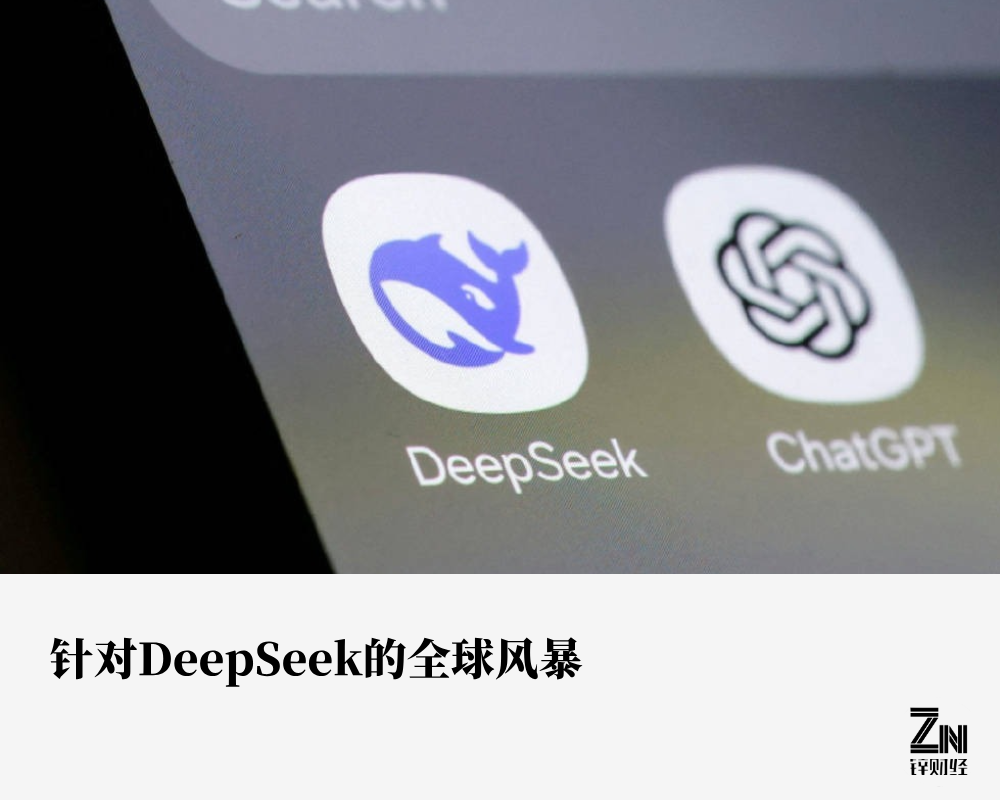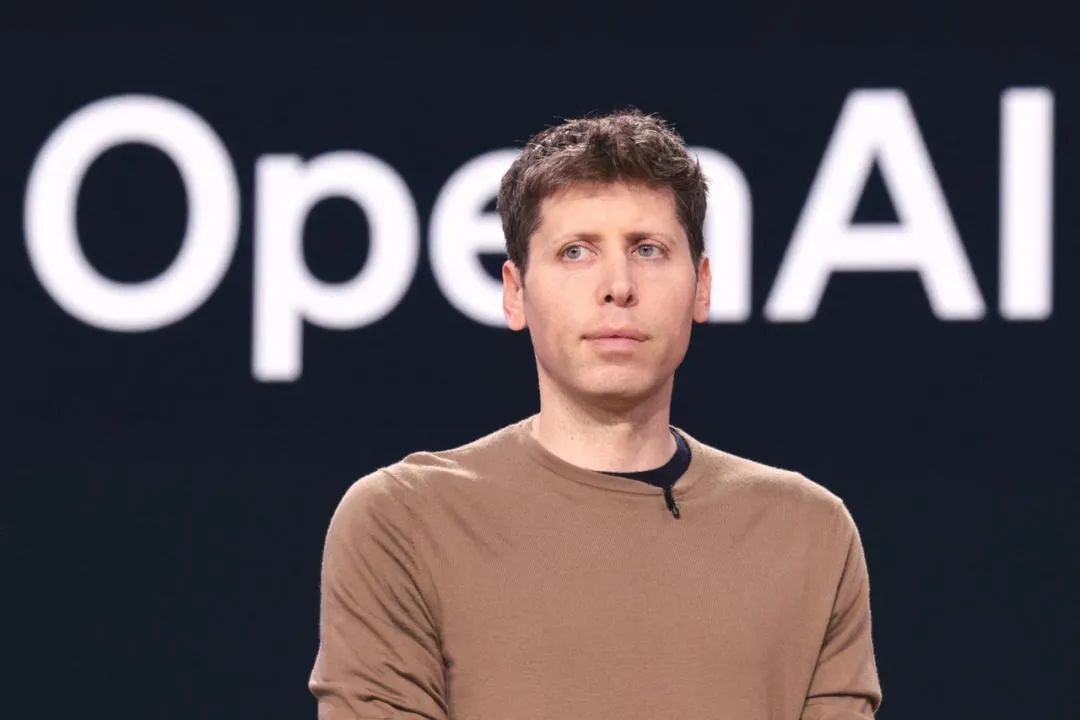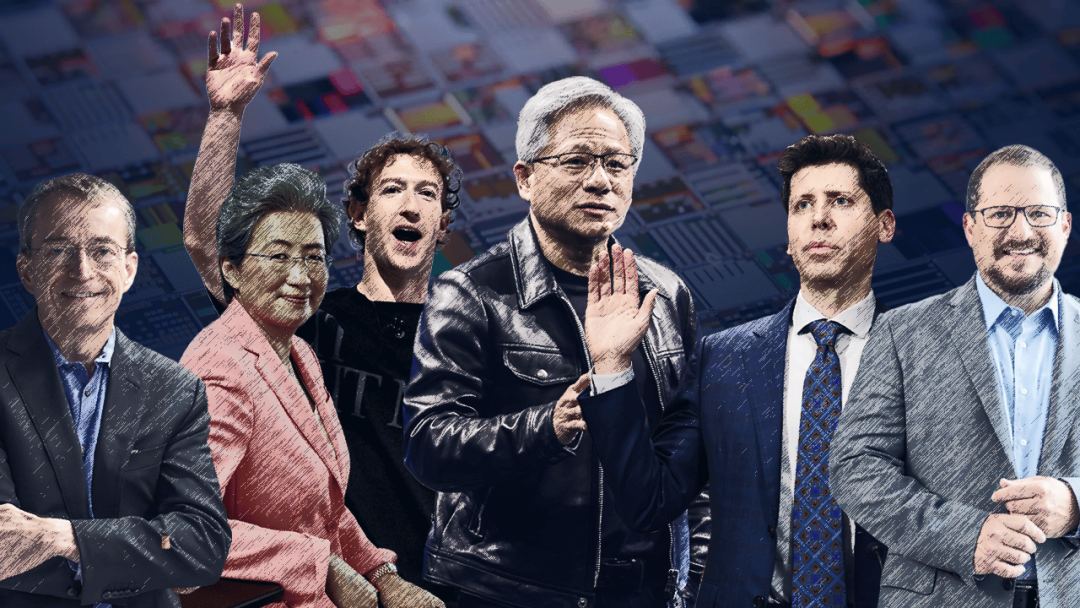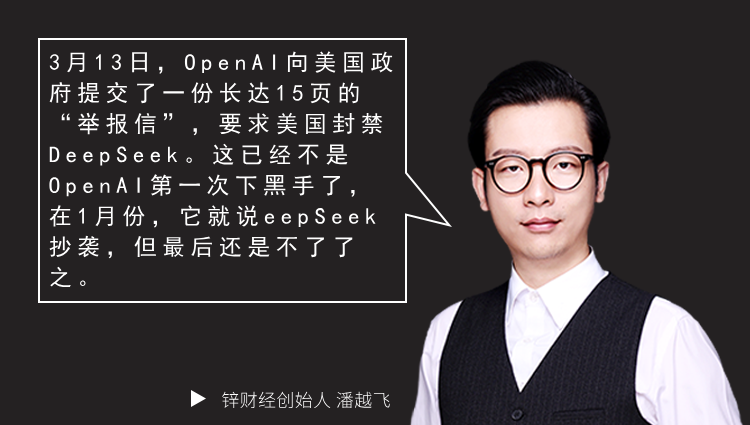OpenAI Urges US Government to Ban DeepSeek in New Report
![]() 03/18 2025
03/18 2025
![]() 660
660

Author|Sun Pengyue
Editor|Da Feng
OpenAI has once again set its sights on DeepSeek.
On March 13, OpenAI submitted a 15-page report to the US government, alleging that DeepSeek R1 poses "significant risks" and requesting a ban.
Not only was the report submitted confidentially, but Chris Lehan, OpenAI's Deputy Director of Global Affairs, publicly stated, "Using DeepSeek in critical infrastructure and other high-risk applications poses significant risks due to potential manipulation by the Chinese government." He added, "DeepSeek infringes on intellectual property rights, and its users may face privacy and security risks."
A global conspiracy against DeepSeek is unfolding.

OpenAI's "Open Conspiracy"
This isn't the first time OpenAI has attacked DeepSeek.
In January, OpenAI claimed that DeepSeek used unauthorized "distillation" technology during model development, which it considered an intellectual property infringement. However, OpenAI could not provide evidence, leading to ridicule from experts and media outlets. CNN accused OpenAI of hypocrisy, claiming it was intentionally smearing its competitors, while Yann LeCun, Chief Scientist at Meta, bluntly stated that owning OpenAI gave a sense of "misplaced superiority." Ultimately, OpenAI dropped the lawsuit due to a lack of substantial evidence.
Sam Altman, CEO of OpenAI, has remained dissatisfied. He publicly provoked DeepSeek on social media, stating that "we will launch a better model." Before this "better model" arrived, OpenAI unveiled a "more expensive model." On February 28, OpenAI released a preview version of GPT-4.5, available only to Pro subscribers who pay $200 per month.
The pricing of GPT-4.5 shocked the AI industry. For API calls, it costs $75 for every 1 million tokens input and $150 for every 1 million tokens output. Compared to GPT-4, the input price surged 30 times, with a significant increase in the output price as well. According to DeepSeek API pricing, GPT-4.5's input price (cache hit) is over 1000 times higher.

Sam Altman
The excessively high pricing failed to deliver the desired results for GPT-4.5, shattering OpenAI's aspiration of "convincing people with technology." So, they resorted to submitting a 15-page report hoping the US would ban DeepSeek in all aspects.
This move also aligns with Trump's new proposal for an "AI action plan," in which OpenAI suggests adopting a tiered system referencing the Biden administration's export rules:
- Tier 1 includes US allies, who can enjoy technology and investment but cannot use equipment produced in China or Chinese AI models.
- Tier 2 includes countries that have failed to prevent export-controlled chips from being transferred to "Tier 3 countries."
- Tier 3 includes countries like China.
This document exposes the true face of American imperialism, transforming the AI technology arms race into a "technological cold war."

Multiple Countries Targeting DeepSeek
It's not just OpenAI or the US. Multiple countries have taken measures to ban or restrict the use of DeepSeek, citing "security risks" and "data privacy" concerns.
Italy was the first to act, banning DeepSeek due to its violation of the EU's General Data Protection Regulation.
Australia's Minister for Home Affairs, Tony Burke, mandated that all government agencies prohibit the use or installation of DeepSeek products, applications, and network services, and remove all existing ones from Australian government systems and devices. Burke stated that DeepSeek poses an "unacceptable risk" to government technology, and the immediate ban is to "protect Australia's national security and interests."
South Korea's Defense Ministry banned DeepSeek from accessing its networked military computers, while the Ministry of Education banned its use within the national education system, from elementary schools to universities. However, South Korea left a backdoor, allowing graduate schools to use DeepSeek for academic research.

DeepSeek
Seeing global action, the US followed suit. US government agencies such as the Congress, Navy, Pentagon, and NASA have also issued bans on DeepSeek.
Furthermore, on January 29, 2025, the "Decoupling America's Artificial Intelligence Capabilities from China Act" was released, prohibiting Americans from assisting China in advancing AI, downloading, or using DeepSeek, or facing up to 20 years in prison and a $1 million fine.
Under the US's influence, Bloomberg reported that hundreds of US companies, especially those related to the government, have blocked DeepSeek. This is not the first time the US has targeted China, having used similar tactics in the 5G and semiconductor fields.
DeepSeek is now receiving the same treatment as Huawei.

Technological Hegemony or Technological Equity
Whether it's the US or South Korea, the reasons given for banning DeepSeek always center around "security risks" and "data privacy." However, this is a microcosm of the struggle for technological hegemony, geopolitical games, and the reshaping of the global AI industry landscape.
Can bans really solve the problem?
Before DeepSeek, AI technology was considered an inaccessible "aristocratic technology" only affordable to a few giants. OpenAI, Google, NVIDIA, and other "tech oligarchs" stood tall in the AI field, overlooking struggling newcomers.

Source: Internet
However, the emergence of DeepSeek-V3 and DeepSeek-R1 has directly changed the rules of the AI world, shifting the logic of global AI competition from a "arms race" reliant on capital and hardware to an "efficiency revolution" focused on algorithm optimization and ecological collaboration.
DeepSeek's open-source model and its seven-day "Open Source Week" have shared code, technology, and models with the world, liberating AI from "computing power monopoly" and making it "AI for everyone." The so-called "AI hegemony" of oligarchs has begun to shake, and everyone realizes that the winner of the AI race is not the party with the most chips.
This is a true technological equity and the beginning of AI inclusion.









